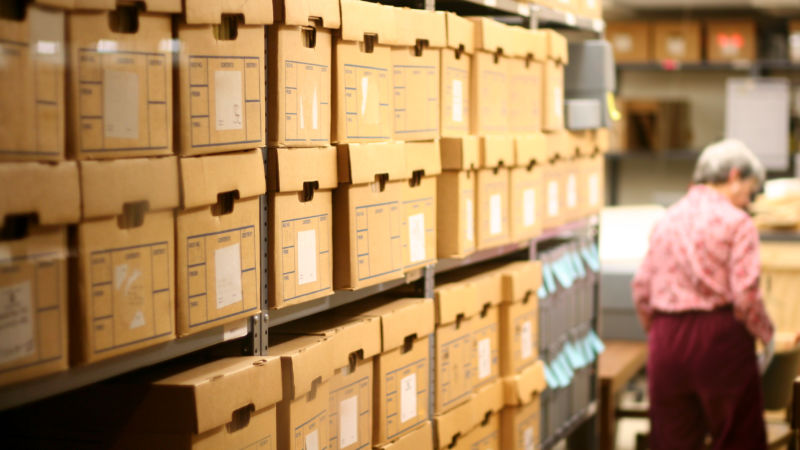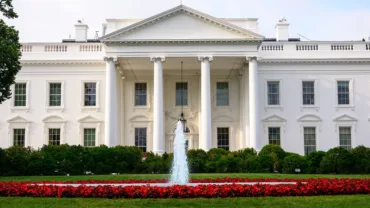Walk into any law office in the country and you’ll soon spot one lurking in the shadows of a desk, or loitering in some out-of-the-way corner of the room. And they’re often not alone – Bankers Boxes and their brethren frequently form gangs, arranging themselves into teetering stacks that can strike fear into anyone who approaches.
Given how familiar Bankers Boxes are in the legal world, their moniker might seem a bit odd — until you hear their story.
The story goes back to 1917, when the Bankers Box Company was formed after a chance elevator meeting between two entrepreneurs. One of the men, Walter Nickel, made cardboard boxes and sold them to banks for record storage. Nickel had just been called up to serve in World War I and was looking for someone to buy his business.
The other man in the elevator, Harry Fellowes, was intrigued by Nickel’s enterprise. The 16th Amendment (the one that legalized the income tax) had taken effect a few years earlier, and Fellowes knew that the tax would soon be expanded to pay for the war effort. If more people were snared by the income tax, he reasoned, more boxes would be needed to store all those tax records.
By the time the elevator doors opened, Fellowes had struck a deal to purchase Nickel’s box-making business for $50, or about $830 in today’s coin. The company went on to diversify into all kinds of office products, and in 1983 the Bankers Box Company changed its name to Fellowes Manufacturing.
As sturdy and economical as Bankers Boxes are, they’ve also come to symbolize some of the most tedious work performed by legal professionals: pulling file folders from a box, one by one, and sifting through hundreds of documents in search of that key piece of information that could cinch up a case.
Bankers Boxes will always be useful for document storage, but their days as case-file organizers are coming to an end, thanks to electronic case management tools like Case Notebook. And as anyone who’s ever hauled a 25-pound file box into a courtroom can attest, that’s a good thing.






